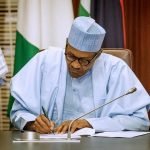Ever since the governor of Central Bank of Nigeria, CBN, Mr. Godwin Emefiele announced a decision for the redesign and reissuance of Naira notes, specifically the denominations of N200, N500 and N1000 notes starting from December 15, there have been several controversies and a spike in the exchange rate of Naira to dollar across the country.
Akwa Ibom State is not left out in the rush as a walk to Udi street and other centres in Uyo where dollars are being exchanged showed an increase in the number of customers, especially agents of politicians coming to exchange Naira to other hard currencies thereby leading to surge in the exchange rate.
As of Sunday evening in Udi street, a dollar was exchanged at N875.00 and being sold at almost N930.00.
One of the persons that exchanges currencies, who identified himself as Umaru, told our correspondent that dollars are no longer sold at any fixed price but dependent on the bargaining power of the buyer, saying that hopefully by next week, it would hit over a thousand Naira per dollar.
The CBN governor had announced that from December 15, the old and new currencies would circulate side by side and by 31 January, the old will phase out and if any person fails to change it, it will no longer be a legal tender.
He said the essence of redesigning the naira was to impact the value of the currency and address the geometric inflation rise, among other reasons.
However, the Minister of Finance, Mrs Zainab Ahmed has faulted the claims before the Senate, saying that the policy portends serious consequences on the value of naira to other foreign currencies, especially in a time like this.
Also, an Uyo-based lawyer and public affairs analyst in the State, Edmund Ewa, in a post on his Facebook wall, faulted the CBN’s move.
He said that Emefiele’s claims that politicians are hoarding more than half of Nigeria’s cash circulation in Naira doesn’t really add up, insisting that politicians actually hoard more monies in dollars, pounds, gold and even crypto currencies since Naira took the nose dive.
Emefiele had said that over 3 trillion Naira notes are supposedly in circulation, but merely a trillion Naira have been accounted for by banks. So the presumption is that the remaining unaccounted couple of trillions are stockpiled somewhere.
According to Ewa, “Mr. Emefiele must think Nigeria is a populace of simpletons to insinuate that 2 trillions cannot comfortably circulate among a population of over 200 million people. Simple arithmetic puts the division at N10, 000 per person. And the last I checked, the highest amount a citizen is permitted to possess in cash according to the money laundering act 2011 is N5 million.
“Another flaw in CBN’s logic is in the cost of printing new money not just under an inflationary economy, but when the inflation is at its peak. The CBN should first tell Nigeria how much it will cost the nation to print new Naira notes and the effect it will have on our economy.
“By virtue of section 8(4) & (5) of the CBN Act, Mr. Emefiele is presumed to have presented this report to the National Assembly before seeking and obtaining presidential approval to so proceed, default of which the National Assembly are now duty bound to probe the said policy in exercise of its powers in Section 88(1) & (2) of the 1999 Constitution of the Federation Republic of Nigeria (As Amended).”
The lawyer also wondered why the Federal Government would be in a haste to fizzle out the currency without giving the people ample time to change to the new notes considering the fact that the present administration has up to May, 29, 2023, to handover, which is more than three months.
He alleged that the target of the redesign which the CBN boss said would gulp 3.3 trillion naira was to make currency flow run dry nationwide by February 2023 to have transactions by political opponents thoroughly monitored.
However, a senior lecturer in the department of Economics, University of Uyo, Uyo, Professor Emmanuel Onwiduokit in an interview, commended the CBN for the redesigning of the Naira notes, saying that it was long overdue.
He said though he has had some disagreement with some of the policies of the Federal Government, redesigning the naira notes is a welcomed development, stressing that it would tackle counterfeiting.
Emmanuel, who explained that periodic redesigning of the Naira is five to eight years as stated in the law, said the last time this was done was 20 years ago, saying that it is better to get it right late than not getting it right at all.
His words, “Each currency has a life span and after that lifespan, it has to be withdrawn and replaced and that replacement is the new note which is being reprinted and you have to pay for it; the only difference is the cost of redesigning and there must be additional security features that will make it more complicated.
“As the Governor of the Central Bank rightly mentioned, most of the money printed is not in the banking system, rather they are outside, under pillow cases, coffins, therefore, the monetary policy of the Central Bank cannot be effective because you will be dealing with just a fraction. But with this, people will be forced to take money to the bank and we even have a law in Nigeria that determines the amount of cash you can carry and it would trigger the EFCC and financial crime intelligence to know who has deposited outrageous sums and commence investigations.”
Speaking on the N3.3trillion as the cost to redesign the Naira, the don reasoned that under normal circumstances, the Central Bank pays for the reprinting of currencies, noting that the only thing was the additional payment for the redesigning, which would carry more security features that would check the activities of counterfeiting.
He queried, “Are we not paying for the printing of the currency? The only difference is the redesigning; for instance, if they print the N1000, they can pay like N50 or 70. The American dollar is printed for 94 cents.”
He also attributed the rise in the purchase of dollars to the unscrupulous activities of politicians and called on the CBN to partner with the Economic Financial Crimes Commission, EFCC, and other security agencies to ensure that they are closely monitored and investigated.
“One of the reasons the dollar is going the way it is going is because dubious politicians want to reduce the quantity of naira they are carrying. I advise the CBN now to partner with EFCC and other security agencies to monitor and see how they can reduce this, because they will go now to change it to foreign currency. Monitor especially, the bureau de change and black market, whoever that is involved in changing suspicious amounts of money should be arrested and investigated.
“I can’t see why someone should be keeping one billion Naira in a house, government can even recover a lot of tax from it because someone who made money legitimately and didn’t pay tax, government will establish first what did you do to make such amount, if it’s genuine, you pay tax, but if the government found out it was not genuine, then you forfeit the money.”
Emmanuel said it’s left for each segment that is attached to the implementation of the policy to be alive to be its’ responsibility.
He, however, said there was the need for sensitization of people, especially those in the rural areas on how to identify the security features of the new naira notes.






